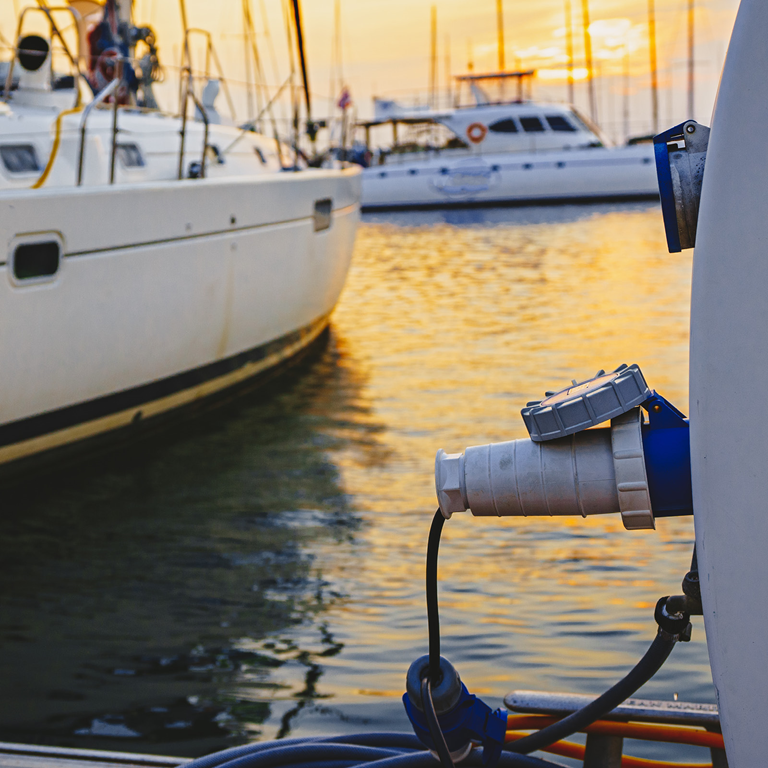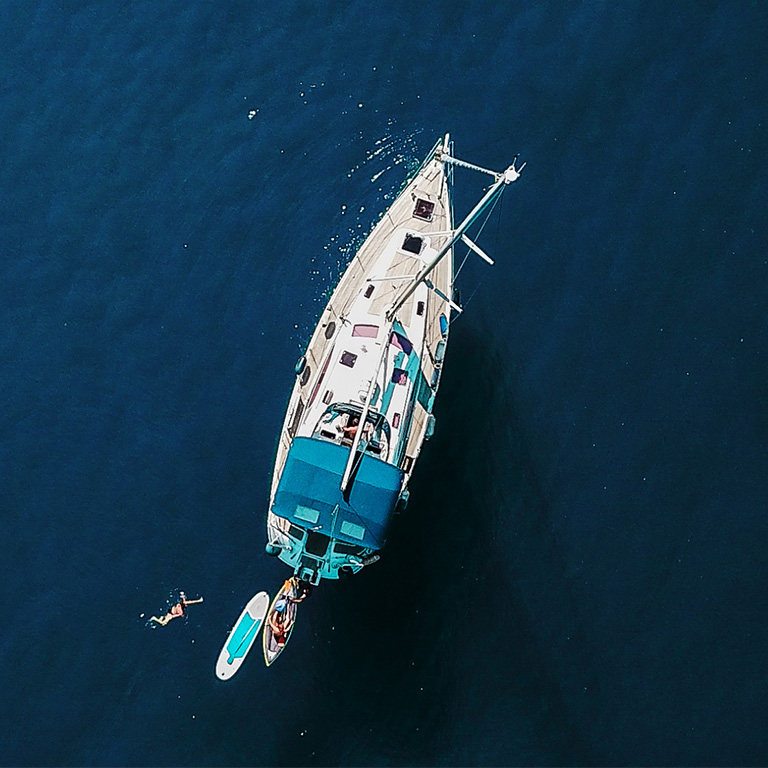With the summer season fast becoming a distant memory, and the advancing dark nights and mornings present, boat owners will start to turn their thoughts to storing their boats for winter. When laying up your boat it’s important not to overlook insurance, as even during periods of inactivity, your boat could still be exposed to various risks. However, hopefully with our advice, you can help keep your boat safe and in tip-top condition, so when spring arrives you’ll be ready to set sail once again.
Sailing dinghies
If you leave your dinghy in a dinghy park throughout the winter:
- Make sure you properly tie down and secure your dinghy, and ensure its cover is in good condition and fit for purpose.
- Do not leave sails and other removable or personal items on-board.
- Remove and winterise outboard motors.
- Make sure you lock your trailer.
Yachts and motorboats
Changing seasons with longer hours of darkness and less favourable sailing conditions, mean many choose to lay up their boat and move them into storage for winter. With less reasons to check on your boat, winter can often be a prime target for thieves and vandals who exploit this vulnerability. Frost damage can also cause major problems, so it’s important to consider the following actions to help keep your boat in good condition throughout the winter months:
Sails and canvases
Remove all sails, dodgers and canopies. This will not only reduce windage (one of the main reasons boats are blown over), but will help to extend their life. Winter gales make short work of any fabric left out on deck, especially furled head sails. Not necessarily a key concern in the winter, but UV exposure can also accelerate the build-up of mould and mildew, causing further damage. All sails benefit from being laundered and serviced, so winter can provide the optimum time to consider carrying out this maintenance. If you decide to store your sails away for winter, it’s important to ensure they are safe from moisture, temperature extremes, and pests – a rolled-up sail can provide an extremely comfy home for mice and other rodents, but can end up leaving you with a sail full of holes. Ideally hang your sails up, but if that isn’t feasible, store them on a shelf in sealed containers or closed storage bags. As well as extending the life of your sails, these tips could help you to avoid a claim on your insurance, where you may bear a large proportion of the loss.
Frost damage
Severe and prolonged frosts can cause considerable damage to engines. It is therefore considered good practice that engines are winterised in accordance with manufacturers' recommendations, to ensure protection against frost damage. It’s also a good idea to drain down all water systems on-board to prevent them from freezing and causing further damage. It’s important to note, your insurance provider is unlikely to cover the cost for engine or machinery damage caused by frost and freezing temperatures, unless the manufacturer’s recommendations have been followed.
Outboard motors and metal theft
Theft of outboard motors has long been a problem for boat owners in the UK. If an engine can easily be removed, it poses an attractive target for thieves. As outboard motor claims on marine insurance policies are commonly paid on an indemnity basis, it means there is often no entitlement to a "new for old" settlement. It is therefore essential to take steps to ensure your outboard motor is secured against theft, using purpose built outboard motor anti-theft devices, in addition to the normal method of attachment, or if possible taken home and locked securely away. Easily accessible brass or bronze propellers, can also make an attractive target for thieves, so if they can be removed safely, store them securely away from your boat too. Insurance policy owners should check any security procedures or anti-theft devices that are required by their provider, to avoid the possibility of a claim being invalidated.
Personal effects
It’s sensible to remove all personal effects from your boat and store them in a warm, safe environment whilst your boat is unoccupied for extended periods. By doing so you will make your boat less attractive for thieves to break into, and also helps protect your belongings from damp, which cushions and soft furnishings can be particularly susceptible to.
Cradles and trailers
Most boat insurance policies will insist that cradles and trailers used for transporting and storing your boat have been checked, and are fit for purpose, to avoid accidents and damage to your boat. Therefore, before moving your boat, check all equipment to be used is compliant and in good working order.
In general
Keeping your boat safe and dry during the winter is what all owners strive to achieve. In addition to the above measures, using a good cover for added protection against the elements is advisable. Dehumidifiers can also help to keep damp at bay, but you should ensure that any dehumidifier you use is secured, has clean filters, adequate draining facilities, and is suitable to be run for long periods of time on a boat. If you plan to have a heater running for long periods you should also ensure you are not overloading circuits and you have the right type of heater, as this could significantly increase the risk of fire. If your boat is relying on shore power to run a heater or dehumidifier, it’s important to check with the marina operator that you’re allowed to use this facility whilst your boat is unattended. It’s also advisable to check with your insurance provider if there are any restrictions regarding their use, to avoid invalidating your policy.
Despite not using your boat during the winter months, periodic inspections are advisable just to check all is well. These visits also allow you to carrying out inspections of kit, safety gear and the boat itself whilst out of water, making note of any maintenance needed before spring.
Find out more
If you are unsure about any aspect of your current policy, or you would like a quote for a new policy, the Bishop Skinner Marine team is here to help and you can call us on 0800 783 8057.


